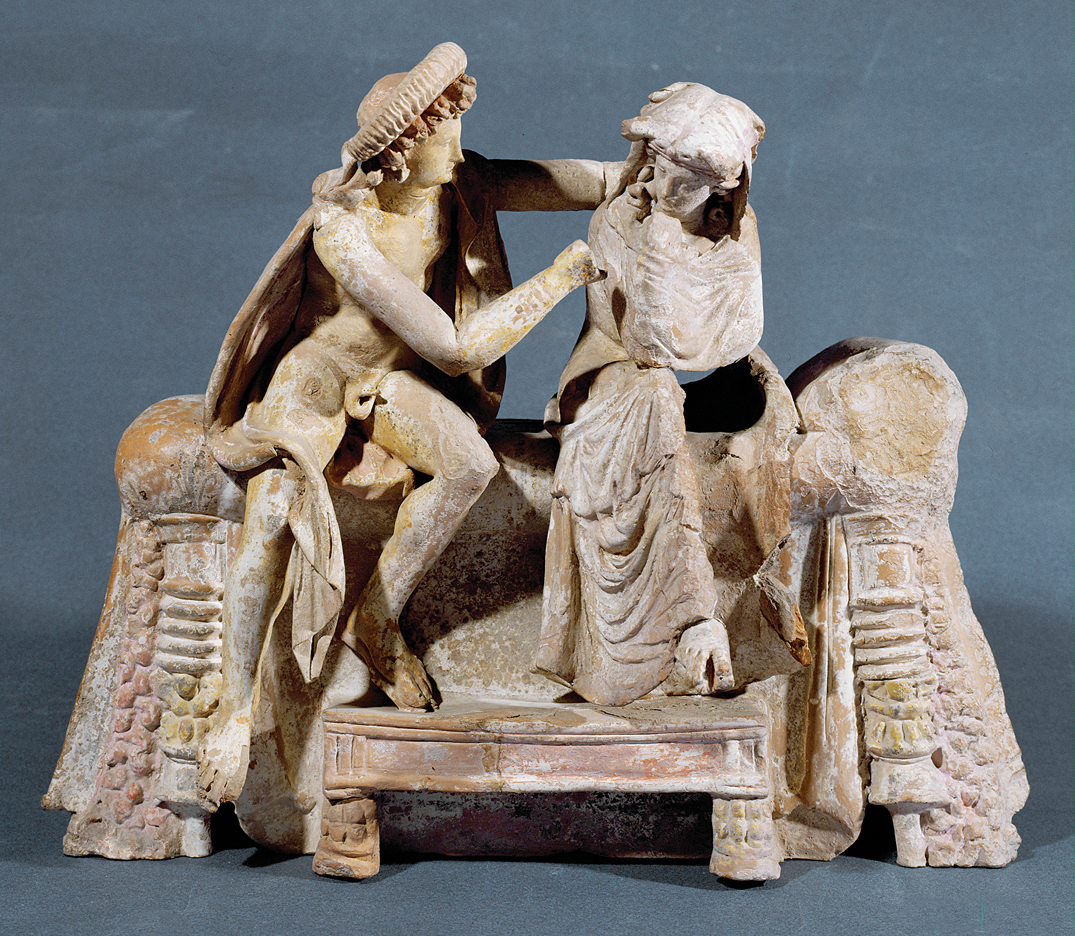A History of World Societies:
Printed Page 138
A History of World Societies Value
Edition: Printed Page 136
Chapter Chronology
Philosophy and Its Guidance for Life
While some people turned to mystery religions to overcome Tyche and provide something permanent in a world that seemed unstable, others turned to philosophy. Several new schools of philosophical thought emerged and caught the minds and hearts of many Greeks and some non-Greeks. One of these was Epicureanism, a practical philosophy of serenity in an often-tumultuous world. Epicurus (340–270 B.C.E.) used observation and logic to study the world and also to examine the human condition. He decided that the principal goods of human life were contentment and pleasure, which he defined as the absence of pain, fear, and suffering. By encouraging the pursuit of pleasure, he was not advocating drunken revels or sexual excess, which he thought caused pain, but promoting moderation in food, clothing, and shelter. Epicurus also taught that individuals could most easily attain peace and serenity by ignoring the outside world and looking instead into their personal feelings. His followers ignored politics because it led to tumult, which would disturb the soul.

Hellenistic Married Life This small terra-cotta figurine from Myrina in what is now Turkey, made in the second century B.C.E., shows a newly married couple sitting on a bridal bed. The groom is drawing back the bride’s veil, and she is exhibiting the modesty that was a desired quality in young women. Figurines representing every stage of life became popular in the Hellenistic period and were used for religious offerings in temples and sacred places. This one was found in a tomb. (Louvre, Paris, France/Erich Lessing/Art Resource, NY)
Zeno (335–262 B.C.E.), a philosopher from Cyprus, advanced a different concept of human beings and the universe. Zeno first came to Athens to form his own school, the Stoa, named after the covered walkways where he preferred to teach. His philosophy, Stoicism (STOH-uh-sih-zuhm), in turn, came to be named for his school. Zeno and his followers considered nature an expression of divine will; in their view, people could be happy only when living in accordance with nature. They stressed the unity of humans and the universe, stating that all people were obliged to help one another.
The Stoics’ most lasting practical achievement was the creation of the concept of natural law. They concluded that as all people were kindred, partook of divine reason, and were in harmony with the universe, one natural law governed them all.
